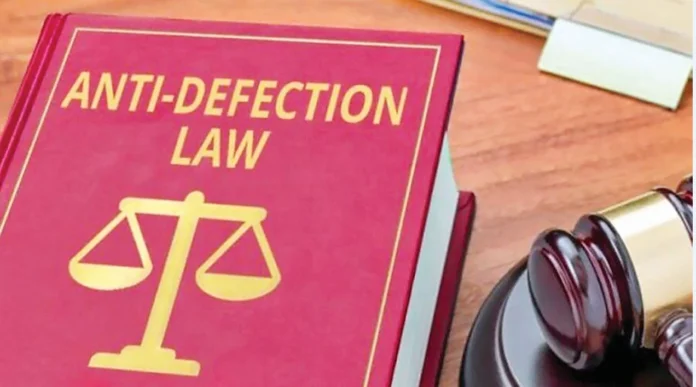By Dr Swati Jindal Garg
“A functioning, robust democracy requires a healthy, educated, participatory followership, and an educated, morally grounded leadership.” Taking a cue from this sentiment, the Supreme Court has sounded the alarm on a growing democratic malaise—the erosion of the anti-defection law through partisan delays by presiding officers of legislative assemblies.
In a significant ruling, a bench comprising Chief Justice of India (CJI) BR Gavai and Justice AG Masih directed the Speaker of the Telangana Legislative Assembly to decide within three months, the disqualification petitions filed against ten Bharat Rashtra Samithi (BRS) MLAs who defected to the Congress after it formed the government following the November 2023 elections. These petitions have remained unresolved for over a year.
This directive marks a shift from judicial restraint to active intervention in defection-related matters, signalling the apex court’s frustration with institutional delays that subvert democratic mandates. “Such delay is a breach of the trust that Parliament reposed in the presiding officers to adjudicate defection cases in a fearless and expeditious manner,” the bench observed.
BLUNTING THE ANTI-DEFECTION LAW
In its 74-page judgment, the apex court questioned whether entrusting speakers—often political appointees—with the adjudication of disqualification cases is serving its purpose. “It is for Parliament to consider whether the mechanism… is serving the purpose of effectively combating political defections,” the bench said.
The case stems from the 2023 Telangana Assembly elections, where the Congress won 64 seats in the 119-member House. BRS secured 39, the BJP 8, AIMIM 7, and CPI 1. The Congress’ tally later rose after ten BRS MLAs crossed over, triggering disqualification petitions—which the Speaker failed to act upon for more than seven months, eventually issuing notice only after prolonged silence.
This judicial reprimand spotlights the absence of statutory deadlines in the Tenth Schedule of the Constitution—the anti-defection law—for presiding officers to decide on disqualification pleas. While courts can review these decisions, they typically refrain from intervening until a final order is issued. As a result, defectors often continue to enjoy the privileges of office, distorting legislative integrity.
THE LEGAL LANDSCAPE
The Tenth Schedule was introduced via the 52nd Constitutional Amendment in 1985 to deter defections lured by power or perks. It lays down specific grounds for disqualification:
- Voluntary resignation from a party.
- Voting or abstaining against party directions.
- Independent MLAs joining a political party.
- Nominated members joining a party after six months.
While earlier the Speaker’s decision was final, the 1992 Kihoto Hollohan case allowed judicial review of such decisions on grounds like mala fide intent or perversity, though not for political bias alone.
GROWING JUDICIAL ACTIVISM
The current judgment builds on precedents like the Keisham Meghchandra Singh case (2020), where the Court ruled that Speakers must decide disqualification petitions within three months, and the Rajendra Singh Rana case (2007), which flagged how delays aid defectors in retaining office illegitimately.
This time, the Court has gone a step further by openly questioning the constitutional propriety of political presiding officers deciding defection matters, suggesting that Parliament must explore alternate, independent mechanisms. “If the very foundation of our democracy is to be safeguarded, it must be examined whether the present mechanism is sufficient,” said CJI Gavai. The Court emphasised the constitutional duty of the Speaker to act impartially, observing that partisan conduct undermines the very architecture of Indian democracy.
THE ROAD AHEAD
The judgment places the onus squarely on Parliament to consider institutional reforms—possibly an independent tribunal or time-bound procedures—that can ensure swift, unbiased and transparent decisions in defection cases.
While the judiciary has so far treaded cautiously in this domain, this verdict signals that its patience is wearing thin. The ball, as the Court makes clear, is now in Parliament’s court.
—The author is an Advocate-on-Record practising in the Supreme Court, Delhi High Court and all district courts and tribunals in Delhi


